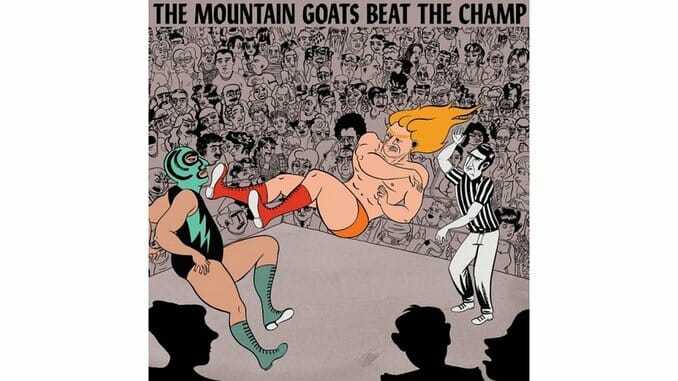The Mountain Goats: Beat the Champ

I have no idea how many Mountain Goats fans are also into professional wrestling. I assume the percentage is not very high. Those who do like both were probably as excited about the idea of Beat the Champ as I was when it was first announced. As a Mountain Goats fan for 20 years, and a wrestling fan for over 30, I’m amazed that something like Beat the Champ even exists.
-

-

-

-

-

-

-

-

-

-

-

-

-

-

-

-

-

-

-

-

-

-

-

-

-

-

-

-

-

-

-

-

-

-

-

-

-

-

-

-








































